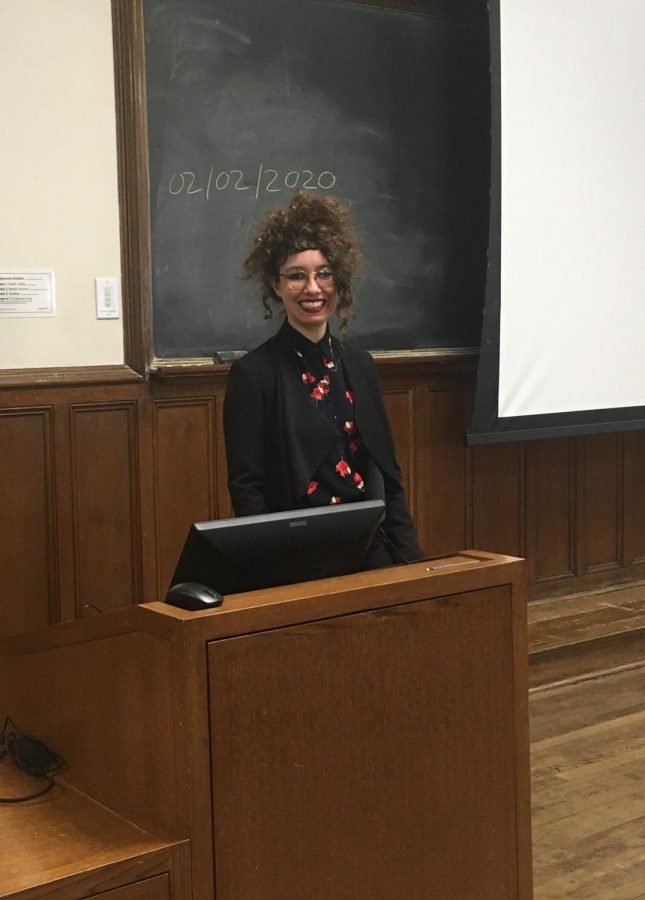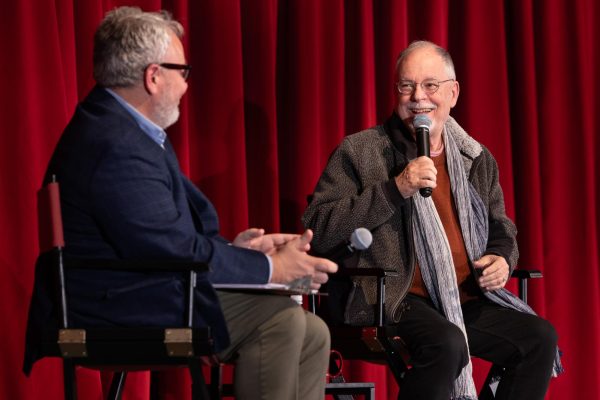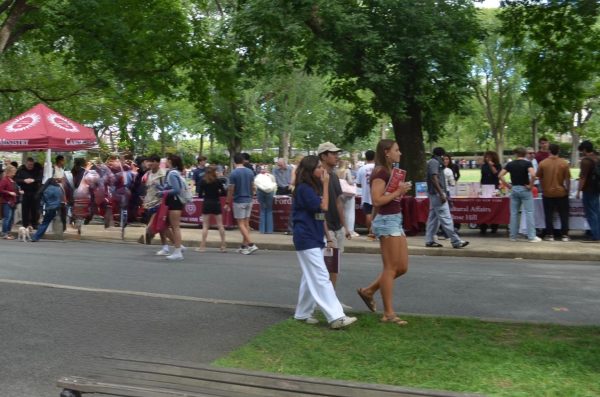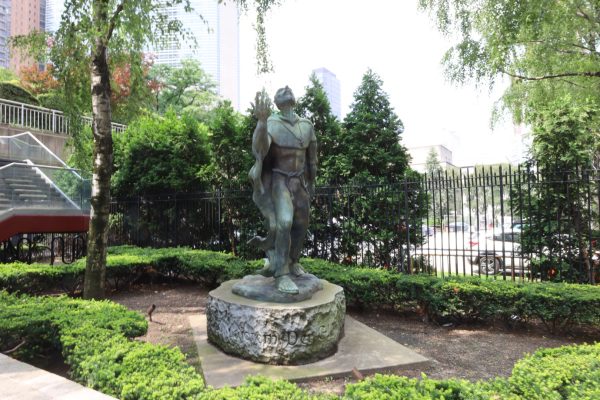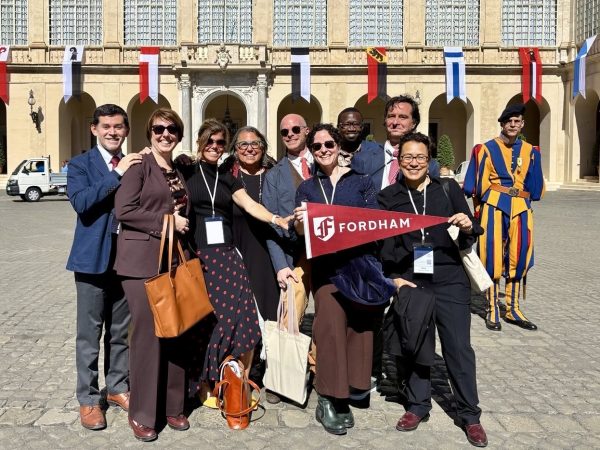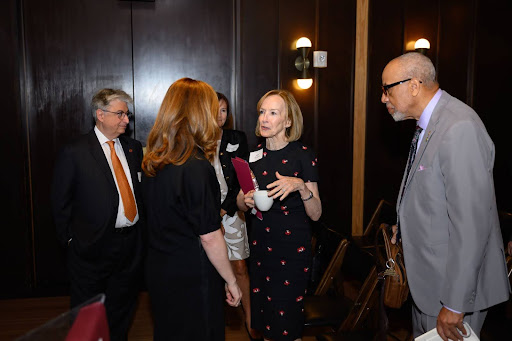American Studies Lecture Series presents Lecture on Green New Deal
The American Studies Election Lecture Series debuted on Feb. 3, with its first lecture “A Globally Just Green New Deal” presented by Thea Riofrancos, an assistant professor of political science at Providence College in Rhode Island. Riofrancos’ research focuses primarily on resource extraction as it relates to the development of renewable energy and ecotechnology in the wake of a climate crisis.
The lecture “A Globally Just Green New Deal” was on the viability of the Green New Deal, which is a proposed set of legislation changes intended to reduce the effects of environmental destruction, climate change and socioeconomic inequality.
Riofrancos said that the Green New Deal’s views on climate policy are scientifically grounded, as she believes the climate crisis is already happening and that we as a planet have a decade to cut global carbon emissions in half.
She said that the world needs to decarbonize as fast as possible to ensure that global warming remains at a level that is still mostly safe, as even what could seem like minute to minute changes in global temperature could lead to thousands of deaths.
“It’s not a future event,” she said. “It’s a current event that threatens to become very exacerbated if we don’t do anything about it.”
She also said that the Green New Deal was “politically astute,” and that it would be a change of legislation particularly focused on material concerns of the everyman.
Riofrancos, while supportive of the Green New Deal and saying that it is a “historic opportunity,” did not shy away from criticizing aspects of current clean-energy developments, especially when those developments require minerals that damage the environment when they are extracted from the earth’s crust.
“Nothing comes from nowhere, right? Our gleaming-clean tech also comes from stuff extracted of the earth,” she said.
Her lecture on socioeconomic equality as it relates to the proposed Green New Deal examined the effects of resource extraction and global supply chains for resources required for green technologies on countries with natural resources that are exploited by global superpowers, such as communities in the Atacama Salt Flats in Chile.
As she displayed a projection of a supply chain for materials commonly used in the batteries of electric vehicles, Riofrancos pointed out that the supply of the minerals came from all over the world.
“This is just a visual of where some of the key raw materials that are in electric vehicles, specifically some of them in the batteries of electric vehicles, which is what I’m researching right now in Chile because it’s one of the sites where we have Lithium exports,” she said.
The demand for lithium-ion batteries in our world continues to grow, as they are necessary for electric vehicles, as well as the storage of power from renewable sources, not to mention mobile phones, personal computers and most other portable electronic devices. However, the extraction of this has numerous negative effects on the communities that live on the land where lithium is found, explained Riofrancos.
“But it’s global, right? This is just a visualization of the supply chains in the global economy that allow Tesla to be made,” she said. “Each of these nodes, if you were to zoom in and go to that place, you would see a coal-fire factory that oppresses labor, you would see a factory that is literally generating emissions that also has some nefarious labor conditions that is producing the capital for the batteries in Tesla.”
The lecture ended on a call to action, as she explained that while the majority of the population’s consumption hardly matches the consumption of those of the top 10% of consumers, people with private jets and various other avenues of producing more than the average amount of emissions, every individual working together can reduce emissions by a noticeable amount.
Riofrancos particularly focused on how we as a population need to work on larger cultural and social changes in order to reduce our consumption and environmental impact as a whole.
“We know that we need to rethink how we think about consumption, how we think about leisure as ‘we drive to the mall and buy things’ or ‘we stream Netflix,’” Riofrancos said. “You know, it’s kind of shocking. One hour of streaming? That’s two refrigerators running for an entire year.”
Cassandra Gonzalez, FCRH ’21, attended the lecture for a class, and stated that while she knew that many professors, including her own, were offering class credit to students that attended the lectures, she came because she has an interest in the Green New Deal.
To learn more about topics relating to American politics throughout the elections, all are welcome to attend the upcoming lectures in this series, all of which will be in the auditorium on the third floor of Keating between 1 and 2:15 p.m. The next lecture in the series, “Angela Davis for President: Embracing the Black Radical Tradition in Perilous times,” will be on Feb. 24, with Robyn Spencer from Lehman College.
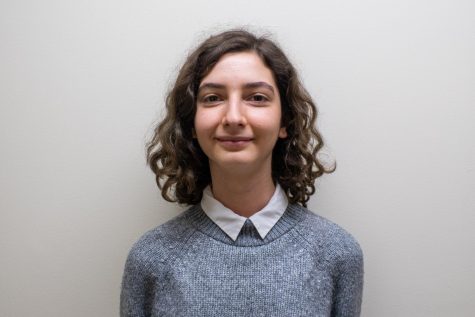
Hasna Ceran is a junior double majoring in economics and Middle East studies. She began by writing the USG Column for Volume 101 and served as an Assistant...



































































































































































































